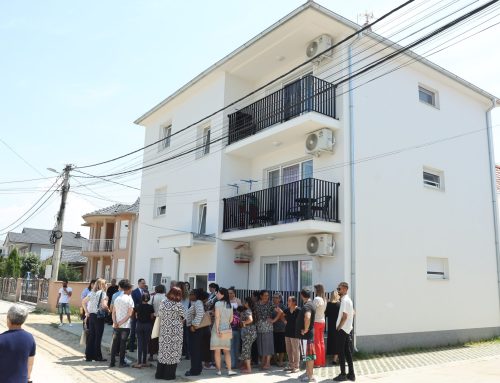European Commissioner for Neighbourhood Policy and Enlargement Negotiations Johannes Hahn said Belgrade-Pristina Agreement should be specific and tailor-made – not a precedent – and in line with the international law.
The view conveyed by EU’s High Representative Federica Mogherini as the mediator has been clear right from the start of her mandate – taking a joint action for a lasting peace between Serbia and Kosovo* and in the rest of the region is the main priority of the EU,” he said in an interview with Pobjeda daily from Podgorica, Beta agency reports.
When asked whether any change to borders would be acceptable for the EU and whether the views held by the Badinter Committee regarding the immutability of borders of Yugoslavia federal units are still valid, the Commissioner said that a lasting solution meant a viable, realistic solution in line with the international law.
“That is the guiding principle, following the opening of talks on the closing stage of the dialogue in July 2017. Any agreement has to be specific and tailor-made, not a precedent, and should contribute to regional stability and the region’s EU path. The parties define the framework of the agreement and they have publicly expanded on their idea of priorities for the lasting solution. They should be given room to agree on the content of the comprehensive agreement on normalisation,” he said.
As he put it, as a mediator, he is not at liberty to discuss potential elements of the legally binding agreement.
“We are trying and will continue to work hard with both sides to reach a comprehensive and sustainable agreement that would be upheld by the international community and fully implemented by both sides. I would like to remind you that no country can join the EU without settling bilateral disputes first,” Hahn said.
Speaking about Montenegro, he said that five years after the beginning of the accession talks, he expected to see tangible results of the reform, felt by citizens of Montenegro, especially in the area of fight against corruption and organised crime, and media freedom.
“We have seen certain progress during the summer: seizure of drugs and arrests related to cigarettes smuggling in the port of Bar. However, we still need more progress in key areas, including money laundering and seizure and confiscation of criminal assets,” Hahn said.
He said that the situation regarding media freedom in Montenegro remained unchanged in the period after the publication of EU’s progress report.
“I repeatedly said we expect a swift and efficient investigation into attacks on journalists, including the unacceptable attack on Olivera Lukic. Moreover, political influence on the national public broadcaster (RTCG) remains a reason of serious concern,” he said.
Hahn said that all political parties should actively engage in a working group charged with election law amendments and noted that the EU was following the developments regarding the parliamentary working group “very closely” and was looking forward to its establishment.
*This designation is without prejudice to positions on status, and is in line with UNSCR 1244/1999 and the ICJ Opinion on the Kosovo declaration of independence.




